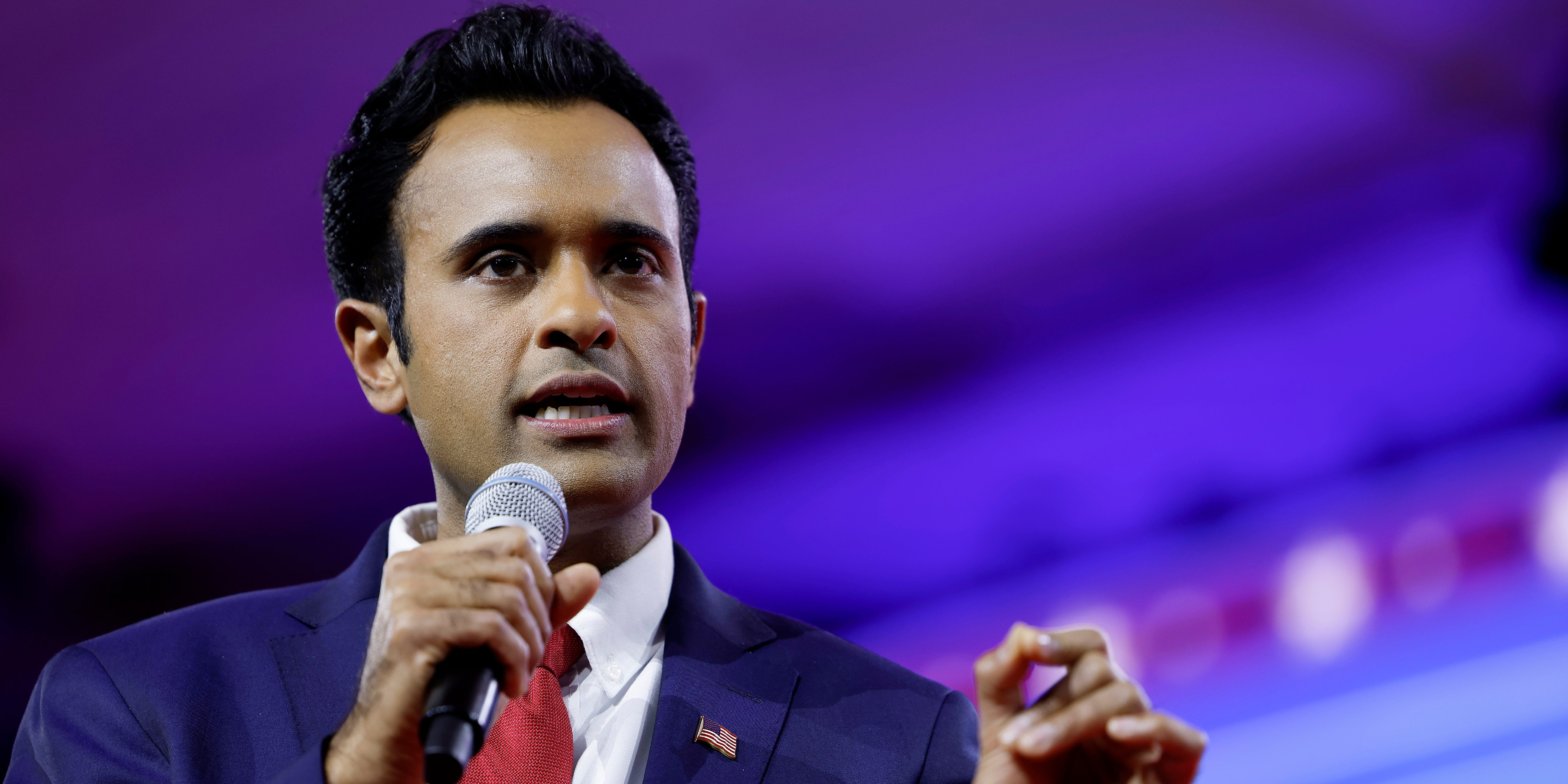Warren Buffett and Vivek Ramaswamy differ in their political views but have some things in common. They like bargains and holding companies, and worry about the impact of social issues on business. The Republican upstart once said he wanted to build the “Berkshire Hathaway of drug development.” Loading Something is loading.
Thanks for signing up!
Access your favorite topics in a personalized feed while you’re on the go.
Warren Buffett and Vivek Ramaswamy are generations apart and hold vastly different political views, but they do have a couple things in common. Both men are bargain hunters with similar taste in corporate structures, and worry about the intersection of business and social issues, albeit for different reasons.
Buffett, 93, is a value investor who specializes in spotting underpriced assets and paying as little as possible for them. Ramaswamy — a 38-year-old biotech entrepreneur with a nearly $1 billion net worth who’s running to be the next US president — became rich by purchasing abandoned drugs from pharmaceutical companies at rock-bottom prices, successfully bringing them to market, then selling them for a fortune.
Buffett, the CEO of Berkshire Hathaway, became a centibillionaire by buying and holding stocks like Apple, Coca-Cola, and American Express that have soared in price over the years. He’s also purchased businesses like Geico, See’s Candies, and the BNSF Railway that have ballooned in value under his ownership.
As for Ramaswamy, his Roivant holding company bought an experimental Alzheimer’s medicine for $5 million in 2015, then took public the subsidiary that owned it at a $3 billion valuation in 2015. However, the drug ultimately failed medical trials, and shareholders voted to dissolve the subsidiary earlier this year. Roivant also developed and secured regulatory approval for five other drugs, resulting in the sale of five subsidiaries to a Japanese company in a $3 billion deal in 2019.
Ramaswamy has also notched big returns as a money manager in recent years. For example, he purchased shares of Pharmasset, which was acquired by Gilead, and Inhibitex, which was purchased by Bristol-Myers Squibb, according to Forbes India.
Perhaps unsurprisingly, the presidential candidate has signaled he wants to emulate at least one aspect of Buffett’s career. He told Forbes India in 2015 that his goal was to create the “Berkshire Hathaway of drug development.”
Ramaswamy was likely nodding to Berkshire’s enormous scale — it has $1 trillion of assets and its nearly $800 billion market capitalization ranks it among the world’s most-valuable companies — and the conglomerate’s vast web of decentralized, autonomous subsidiaries.
Separately, the Republican upstart — who portrays himself as an “anti-woke” crusader — has railed against what he sees as corporate virtue-signaling on climate change and social justice. He’s also accused investment managers of breaching their fiduciary duties by pursuing social agendas.
Buffett is a Democrat who advised President Barack Obama and stumped for Hillary Clinton during her first presidential run in 2016, so it’s fair to say he doesn’t share those views. But in the past couple of years, he’s opted not to speak out about political issues, as doing so could spark boycotts and protests against his companies that could harm his employees and shareholders.
“I’ve decidedly backed off,” Buffett said during Berkshire’s annual meeting last year. “I don’t want to say anything that’ll get attributed, basically, to Berkshire, and have somebody else bear the consequences of what I talk about.”
Buffett and Ramaswamy clearly differ on several fronts. But when it comes to sniffing out bargains, structuring their companies, and asking whether executives should hold forth on the hot-button issues of the day, they’re more closely aligned.
